When it comes to franchisee exit strategy planning, thoughtful preparation is key to ensuring a smooth transition. Whether you're looking to retire, pursue a new venture, or simply step back from your current role, having a solid plan in place can safeguard your investment and future. It's all about mapping out your options and understanding the steps needed to maintain value and continuity for your brand. Ready to dive deeper into the process? Let's explore the essential elements of crafting an exit strategy that works for you!

Clear Business Closure Date
Franchisee exit strategies should include a clear business closure date to ensure a smooth transition for all stakeholders involved. A well-defined closure date allows franchisees to plan the shutdown process effectively, providing a timeline for inventory liquidation, employee termination, and lease negotiations, particularly in retail settings. This date serves as a critical point for communicating with customers, suppliers, and staff about operational changes. By establishing a target for final operations, franchisees can mitigate financial losses, manage assets appropriately, and maintain good relationships with the franchisor, especially if future collaborations are considered. A clear closure date minimizes uncertainty and facilitates logistical arrangements, such as the transfer of operational licenses and permits, ensuring compliance with local regulations.
Steps for Intellectual Property Transfer
Intellectual property transfer during a franchisee exit strategy involves several critical steps to ensure a smooth transition and protection of proprietary assets. First, a comprehensive inventory of all intellectual property, such as trademarks (e.g., brand names, logos), trade secrets (e.g., recipes, customer lists), and proprietary processes (e.g., operational manuals), should be created. This inventory should detail registration numbers, expiration dates, and usage rights associated with each asset. Next, legal agreements must be drafted, including transfer agreements that specify terms of the transfer and any licensing arrangements for ongoing use by the outgoing franchisee. Due diligence is essential, confirming that all intellectual property rights are valid and enforceable. Notify relevant stakeholders, such as suppliers and customers, about the change to maintain continuity in business operations. Lastly, finalize the transfer through an official signing process, ensuring all parties acknowledge the renunciation of the outgoing franchisee's rights and clarify the obligations of both parties moving forward.
Employee Transition Plan
An Employee Transition Plan is critical for ensuring a smooth transition during a franchisee exit. Effective communication is essential to inform employees about the impending changes and future opportunities. Key elements include outlining roles and responsibilities, providing timelines for transition, and detailing any necessary training programs for new management. Additionally, employee retention strategies may include potential severance packages or job placement assistance for displaced workers. Establishing a feedback mechanism can also help address employee concerns, fostering a supportive environment throughout the transition process. A well-crafted plan will minimize disruptions and maintain morale during this period of change.
Asset Liquidation & Financial Settlements
Developing a franchisee exit strategy requires careful planning, particularly concerning asset liquidation and financial settlements. The process begins with a comprehensive inventory of physical assets, including equipment, inventory, and property (real estate value fluctuating widely across regions). Each asset must be appraised accurately to determine market value, considering local demand and replacement costs. Subsequently, creating a liquidation plan is essential, deciding whether to sell assets individually, in bulk, or via auction platforms (many franchisees have found success using online auction sites). Financial settlements with franchisors must be examined, particularly regarding outstanding fees and royalties, ensuring a clear understanding of any contractual obligations before termination. Legal guidance can help navigate potential disputes or liabilities, especially in high-stakes franchises, such as fast food chains or retail businesses. Finally, effective communication with employees and stakeholders throughout the exit process fosters a smooth transition, minimizing disruptions and preserving the franchise's reputation even as operations wind down.
Communication Strategy with Stakeholders
Effective communication strategies are crucial for implementing a successful franchisee exit strategy. First, informing key stakeholders, such as franchise owners and employees, ensures transparency during the transition period. This communication must include planned timelines for exit phases and expectations for ongoing operations. Regular updates via emails, meetings, or newsletters can facilitate understanding and maintain morale among the remaining franchise staff. Additionally, a strong focus on ongoing support resources is essential to address concerns and questions. An exit plan should also incorporate feedback mechanisms to gauge stakeholder sentiments, ensuring everyone feels heard and valued throughout the process. This proactive approach fosters a sense of community and minimizes disruption as franchise operations shift.

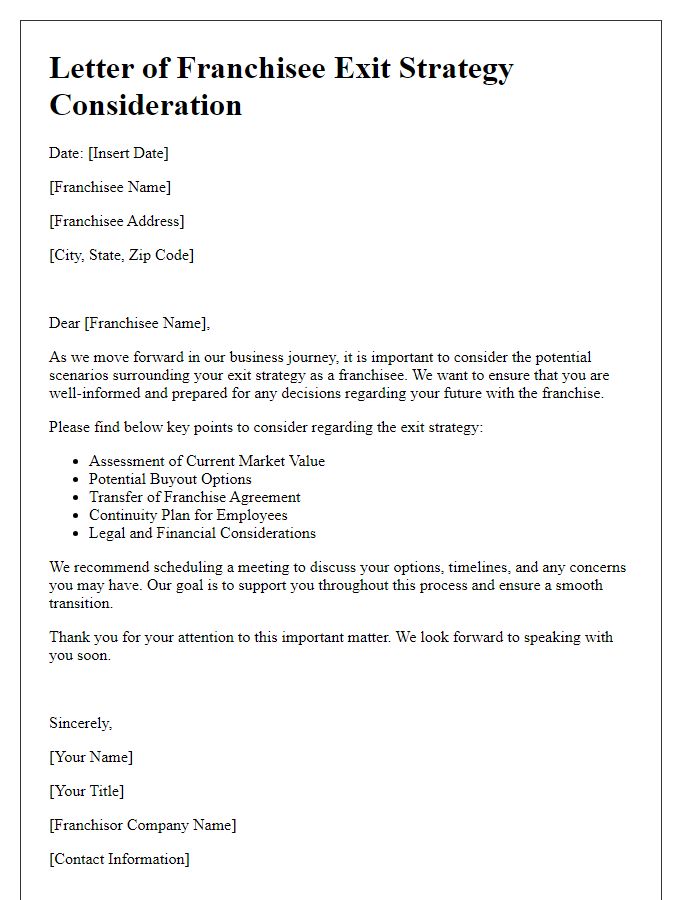
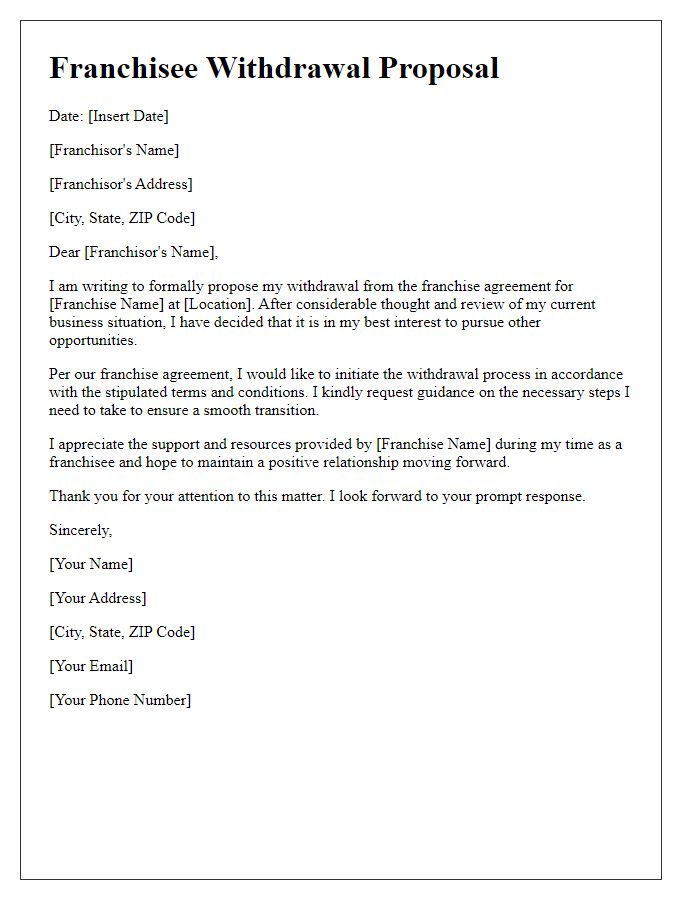
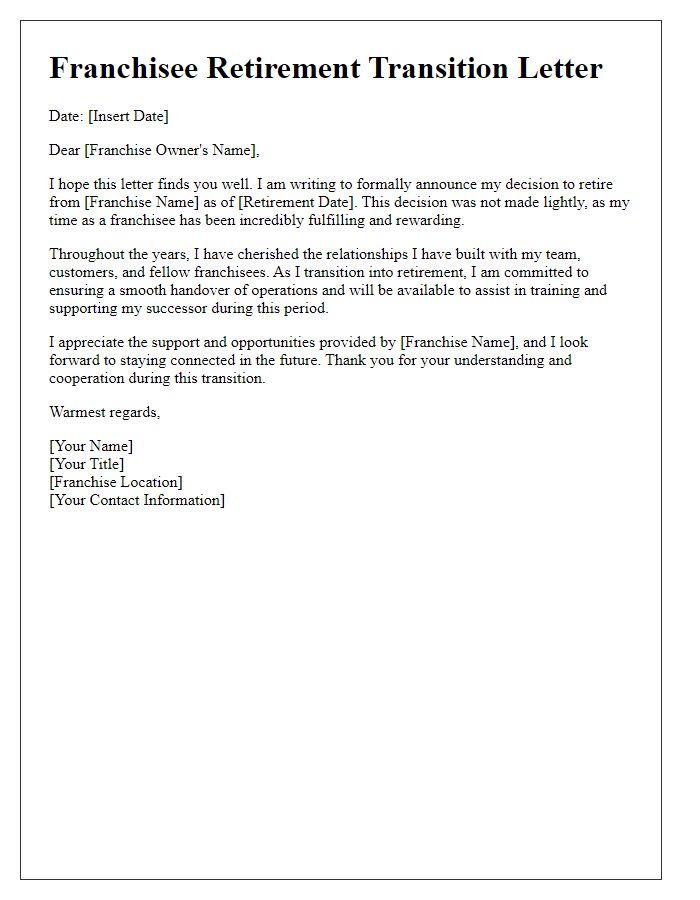
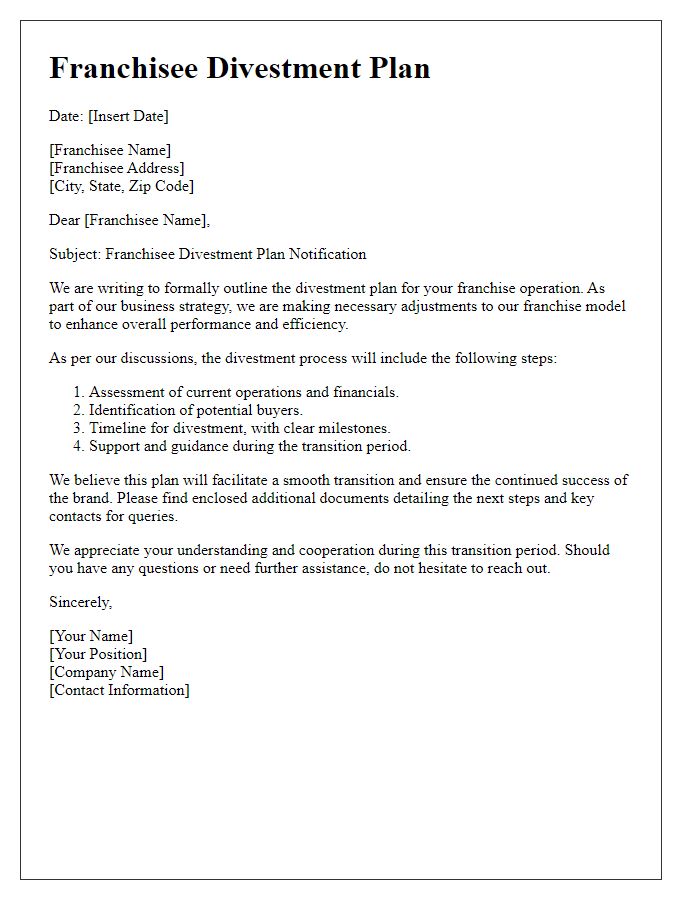
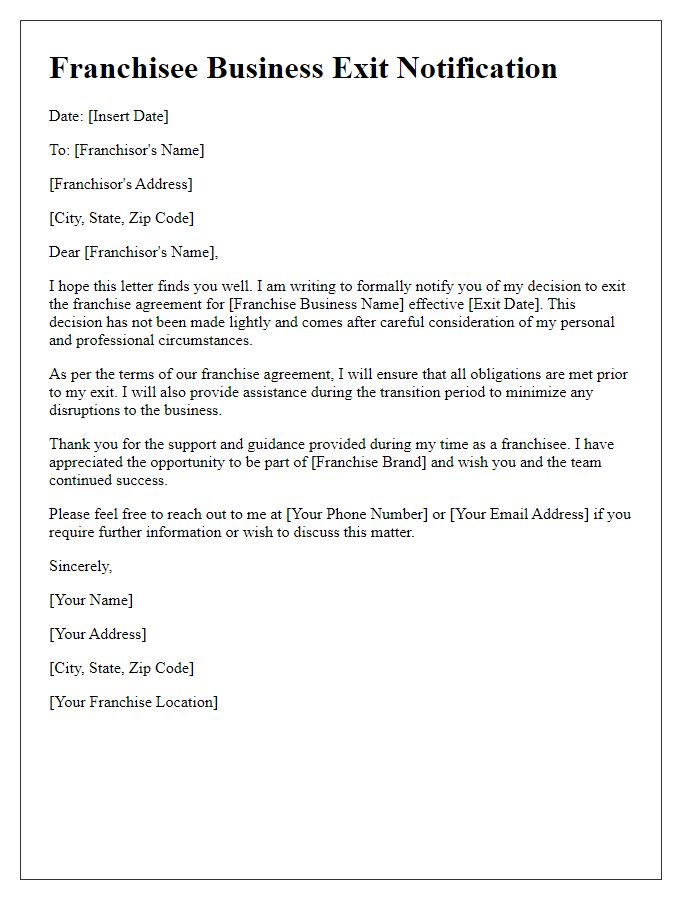
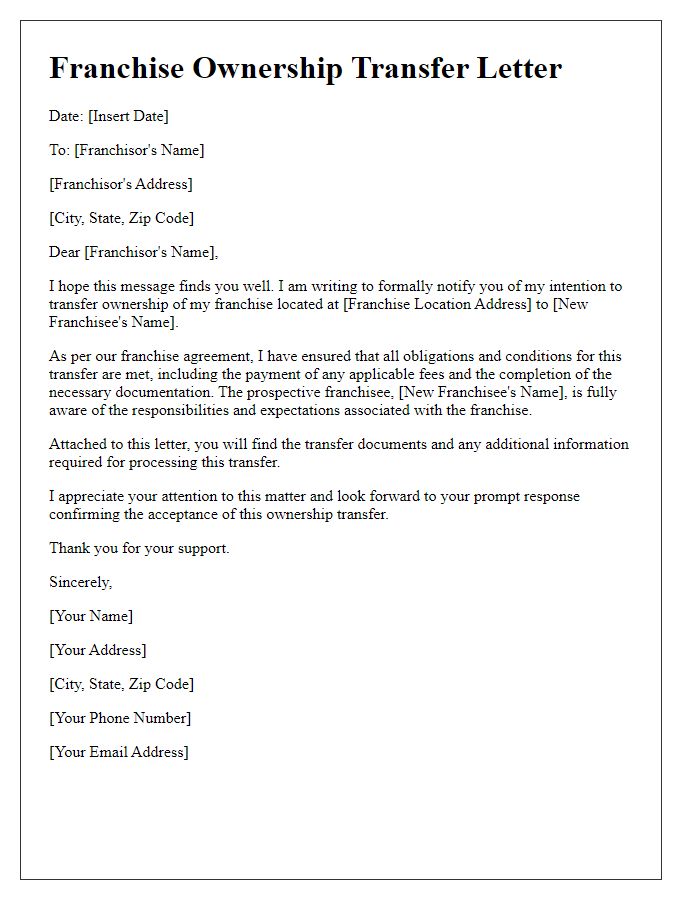
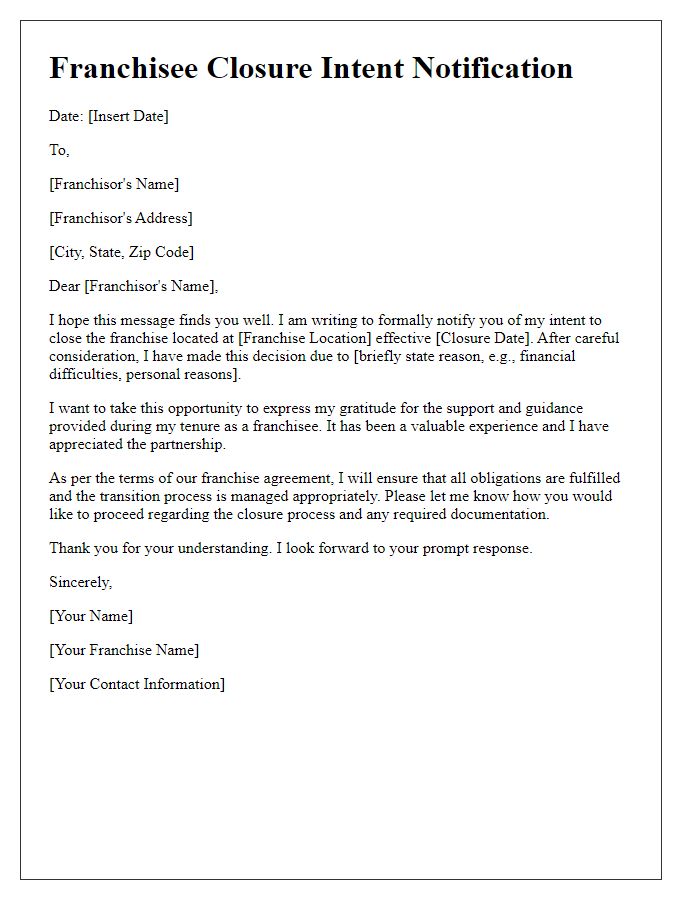
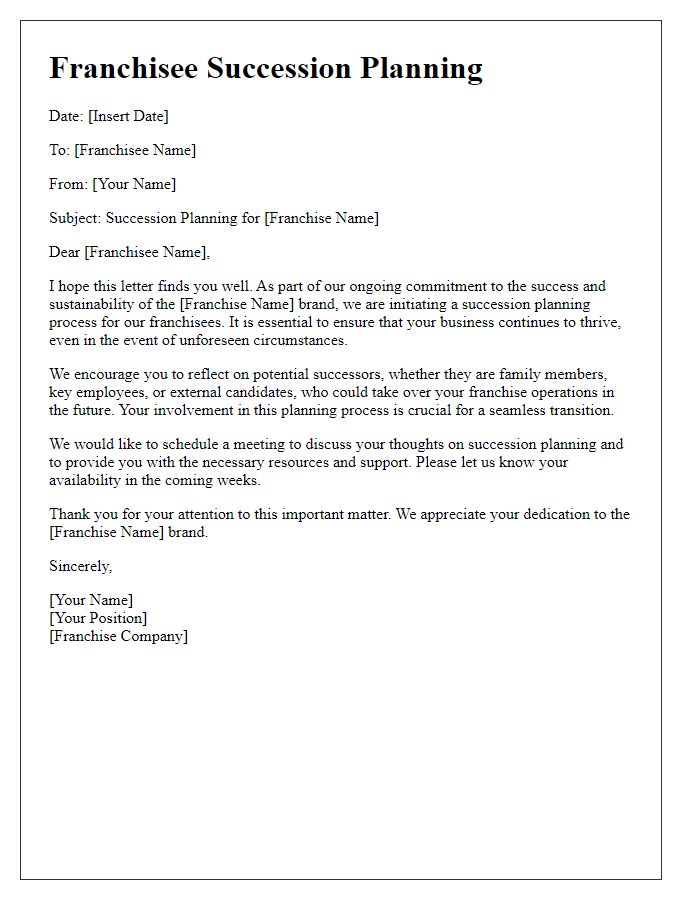
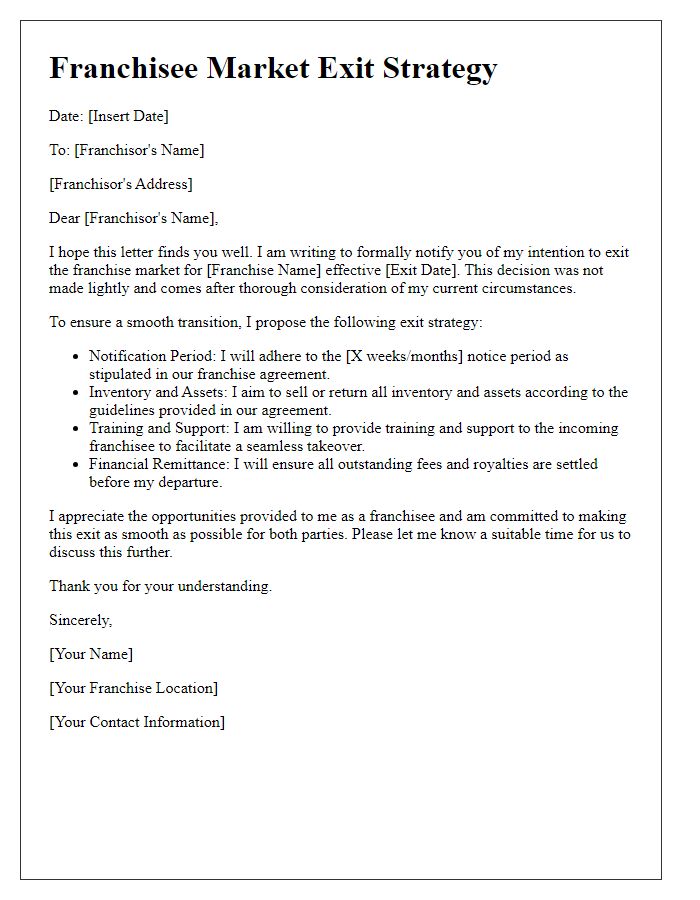
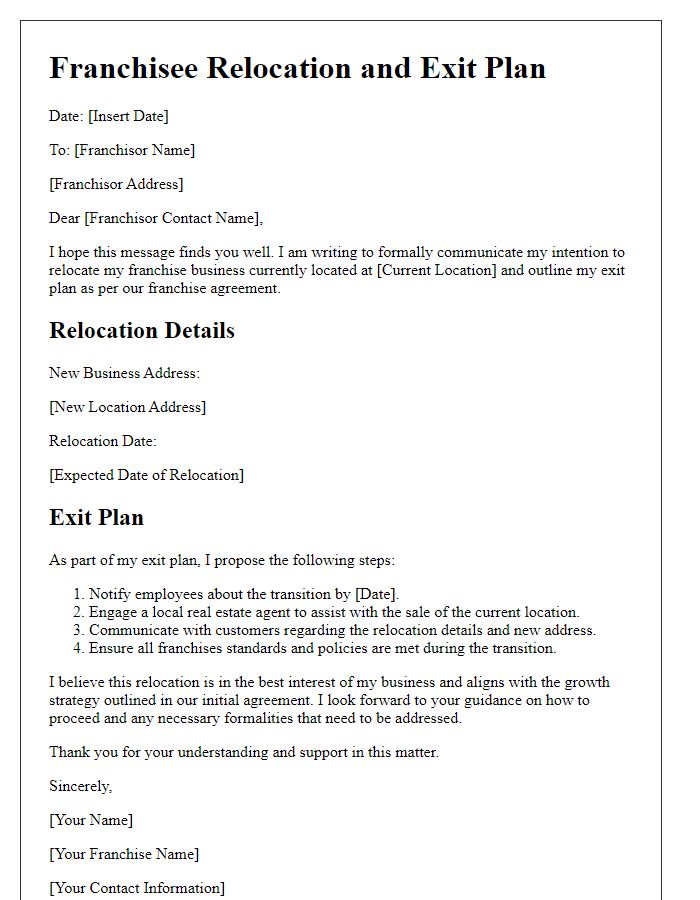


Comments